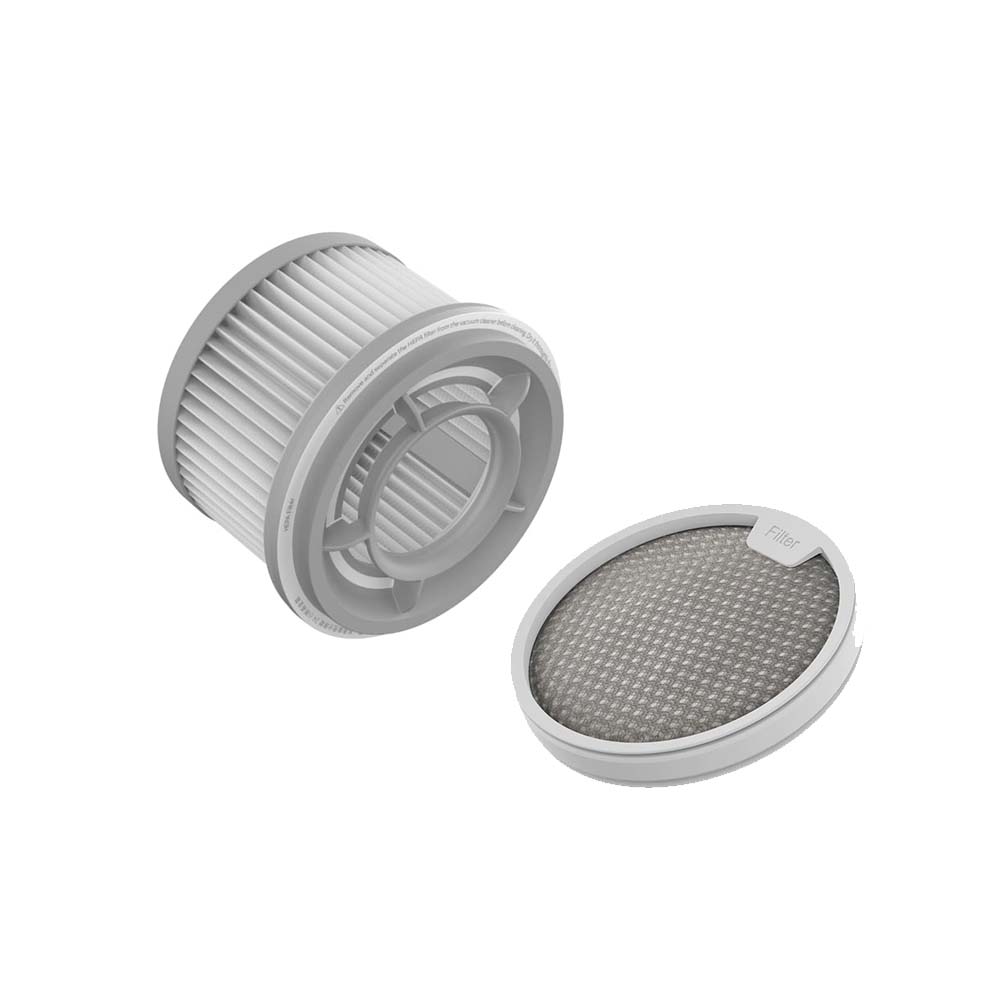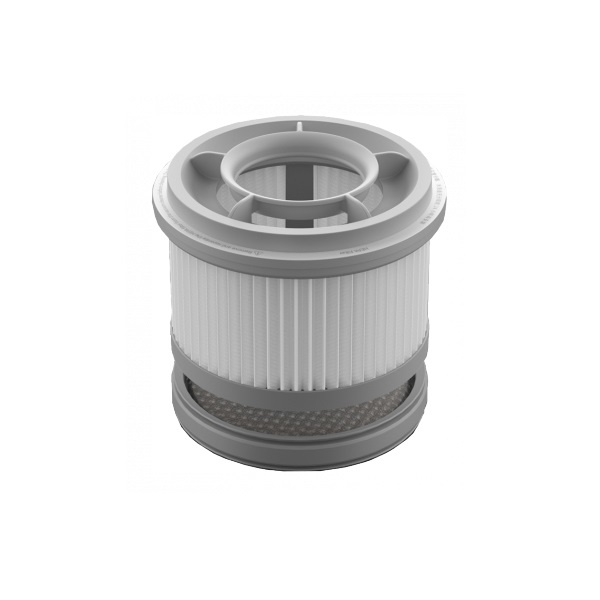What is a HEPA Filter?
What is a hepa filter in a vacuum cleaner? A HEPA filter stands for High-Efficiency Particulate Air filter. This filter traps harmful particles. These include pollen, pet dander, dust mites, and tobacco smoke. Typically, such a filter can capture particles as small as 0.3 microns. This is why it’s critical in vacuum cleaners. It ensures that these tiny particles do not escape back into the air. A true HEPA filter must meet standards set by the DOE. DOE stands for the Department of Energy. It must capture at least 99.97% of particles 0.3 microns or larger. Some vacuum cleaners with HEPA filters improve air quality. This can make a big difference for people with asthma or allergies. Remember, not all filters labeled ‘HEPA-type’ or ‘HEPA-like’ meet these strict standards. For the best results, look for filters that meet true HEPA standards.

Importance of HEPA Filters for Allergy Sufferers
HEPA filters play a crucial role for those with allergies. These filters trap allergens that often trigger symptoms. Dust mites, pollen, and pet dander are common in homes. They can cause sneezing, coughing, and itchy eyes among sensitive individuals. With a true HEPA filter in a vacuum cleaner, these particles get captured. This prevents them from re-entering the air and causing discomfort. By using a vacuum cleaner with a HEPA filter, allergy sufferers can breathe easier. The air quality in the home improves significantly. Regular cleaning with such a filter can make a home a safer haven for those with allergies. Those without allergies also benefit from cleaner air. It reduces the overall dust and potential allergens in the space. For anyone prioritizing health, a vacuum with a HEPA filter is essential. It ensures a cleaner living environment and may contribute to improved respiratory health.
How HEPA Filters Work in Vacuum Cleaners
A HEPA filter in a vacuum cleaner is a complex piece. It captures tiny, harmful particles. As the vacuum cleaner runs, air flows through the HEPA filter. Here, the magic happens. The filter’s dense mat of fibers traps particles. It uses a combination of three mechanisms.
Interception
Particles following the air’s flow line collide with fibers. They stick to them, unable to pass through.
Impaction
Larger particles can’t dodge fibers due to inertia. They embed themselves directly into the filter.
Diffusion
Smallest particles move erratically. This random motion increases contact with fibers. They get trapped.
The vacuum’s motor sucks in debris-laden air. The HEPA filter acts as a barrier. Clean air exits, while particles remain caught in the filter. Each use ensures more particles get removed from your home.
It’s important to note, a filter’s performance can vary. Factors like the filter’s size and the vacuum’s airflow affect efficacy. To maintain effectiveness, regular filter changes are essential. Remember, for allergy sufferers, this can make a big difference. Air quality improves, making living spaces safer and more comfortable.

Types of HEPA Filters for Vacuum Cleaners
When considering what is a HEPA filter in a vacuum cleaner, it’s essential to know the types available. Vacuum cleaners can come with different HEPA filters, each with its specific features. Let’s explore the main types you will encounter:
True HEPA Filters
True HEPA filters meet the stringent standards of the Department of Energy (DOE). These filters capture 99.97% of particles that are 0.3 microns in diameter or larger. They are the gold standard for those with severe allergies or asthma.
HEPA-Type Filters
HEPA-type filters have similar constructions to true HEPA filters but don’t meet DOE standards. They capture a lower percentage of particles and might not be as efficient for severe allergy sufferers.
Washable HEPA Filters
These filters offer ease of maintenance as they can be cleaned and reused. However, their efficiency might decrease over time compared to non-washable true HEPA filters.
Ultra-Low Penetration Air (ULPA) Filters
ULPA filters capture even smaller particles than HEPA filters, with efficiencies of 99.99% for particles 0.12 microns or larger. They are used in scenarios requiring ultra-clean air but tend to be more expensive.
Each type of HEPA filter has its benefits and limitations. The choice often depends on individual needs, such as allergy severity or maintenance preferences. Remember to verify that the vacuum cleaner brand specifies the exact type of HEPA filter used to ensure it meets your requirements for air purity.

Choosing the Right Vacuum Cleaner with HEPA Filter
Choosing the right vacuum cleaner with a HEPA filter requires consideration of various factors. Here are key points to help you make an informed decision:
Evaluate Your Allergy Needs
Consider the severity of your allergies. A true HEPA filter is ideal for those with severe reactions. It ensures the highest level of particle removal.
Check the Filter Type
Make sure the vacuum cleaner has a HEPA filter that meets true HEPA standards. Avoid ‘HEPA-type’ filters if you need maximum efficiency.
Look at Performance Specifications
Examine the performance specs of the vacuum. A powerful motor and a well-designed filter system enhance the unit’s effectiveness.
Consider Ease of Use
Choose a vacuum that is easy to maneuver and maintain. This includes easy access for filter changes and parts replacements.
Budget and Long-Term Costs
Factor in the initial cost as well as long-term expenses. Remember, replacement filters add to the overall cost.
Read Reviews and Recommendations
Look up reviews and recommendations from other allergy sufferers. They provide real-world insights into the vacuum’s performance.
By assessing these aspects, you can find a vacuum cleaner with a HEPA filter that suits your needs. This will help maintain a clean and allergen-free home environment.
Maintenance and Replacement of HEPA Filters
Maintaining your vacuum’s HEPA filter is crucial for optimal performance. Regular checks are essential. Without upkeep, a filter can clog and lose efficiency. Here are steps for proper maintenance:
Regularly Check the Filter
Examine your HEPA filter often. Look for buildup of dirt and debris. At minimum, check every 3 to 6 months.
Clean or Replace According to Manufacturer’s Guidance
Some HEPA filters are washable. Follow the manufacturer’s instructions for cleaning. Non-washable filters require replacement. Don’t reuse these as it compromises air quality.
Dispose of Used Filters Properly
Discard used filters responsibly. Check local disposal guidelines. This is important for environmental safety.
Use Genuine Replacement Filters
Use filters designed for your vacuum model. This ensures the best fit and performance. Off-brand or counterfeit filters may not work as well.
Keep Track of Replacement Schedules
Create a schedule for filter changes. This avoids unexpected dips in air quality. Most filters need replacement every 12 to 18 months.
Remember, a well-maintained HEPA filter makes your home healthier. It captures harmful particles that could trigger allergies. For the cleanest air, take care of your filter. This means regular cleanup and timely replacement.
Effectiveness of HEPA Filters in Household Cleaning
When discussing what is a HEPA filter in a vacuum cleaner and its benefits, the effectiveness in household cleaning is a critical aspect. HEPA filters have a significant impact on maintaining a clean and healthy home environment. Here’s how they can help in day-to-day cleaning tasks:
Trapping Microscopic Particles
HEPA filters excel at capturing microscopic particles that are often invisible. This includes common allergens like dust mites, pollen, and pet dander.
Reducing Allergens in the Home
By trapping allergens, HEPA filters contribute to a notable decrease in allergy triggers around the house. This makes the living space more comfortable for allergy sufferers.
Improving Air Quality
Using a vacuum cleaner with a HEPA filter regularly can improve indoor air quality. It prevents the recirculation of fine particles back into the room.
Enhancing Cleaning Efficiency
Thanks to the high standards required for HEPA filters, they enhance the overall efficiency of cleaning. This ensures more thorough removal of dust and debris.
In summary, HEPA filters in vacuum cleaners play a vital role in household cleaning. They effectively trap harmful particles, reduce home allergens, improve air quality, and enhance cleaning efficiency. For maintaining a clean and allergen-free home, a vacuum cleaner equipped with a true HEPA filter is an excellent choice.
Comparing HEPA Filters with Other Vacuum Filter Technologies
When exploring what is a HEPA filter in a vacuum cleaner, it’s also important to compare it with other filter technologies. There is a range of filters used in vacuum cleaners, each with its unique qualities. Let’s weigh up how HEPA filters stack against other options:
Standard Filters
Standard filters may catch larger particles of dust and debris but often fall short when it comes to smaller allergens. In comparison, HEPA filters trap particles as small as 0.3 microns with a 99.97% success rate, making them superior for those who need cleaner air.
Charcoal Filters
Charcoal or activated carbon filters are great for reducing odors. Yet, they do not match the particle-trapping abilities of HEPA filters. HEPA filters do not generally reduce odors, but they excel at ensuring the smallest of particles are not released back into the air.
Foam Filters
Foam filters can be washed and reused, offering a cost-effective solution for users. However, they are not as fine as HEPA filters. Therefore, they cannot capture the most minute particles that HEPA filters can.
MicroFresh Filters
Some vacuums feature MicroFresh filters, known for reducing dust and allergens. While these do offer a degree of protection, they are not as efficient as HEPA filters in trapping the finest particulates.
Multi-Layer Filtration Systems
Advanced vacuums might employ multi-layer filtration systems, which can include pre-filters, main filters, and post-filters. Although these systems are comprehensive, a layer with a true HEPA filter is still needed for capturing the smallest contaminants.
In essence, while other filters have their benefits, none match the efficiency of HEPA filters in removing microparticles from the air. This is key for those suffering from allergies or respiratory issues who need the cleanest environment possible. Always consider the type of filter alongside the other features of a vacuum cleaner to ensure it meets your specific cleaning needs.


